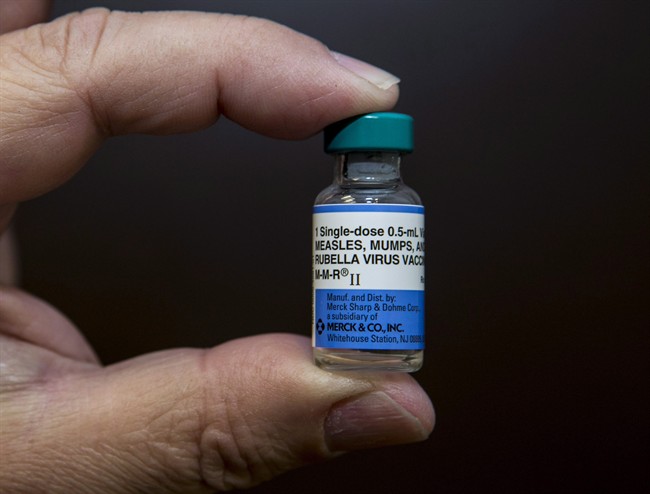A case of mumps has been confirmed at Halifax West High School prompting public health officials to advise students and staff how to protect themselves against the virus.

READ MORE: 3 measles cases confirmed in Halifax: health authority
According to a notice posted Wednesday on the school’s website, a student or staff member had been diagnosed with the virus. A letter from the Nova Scotia Health Authority (NSHA) said through an investigation, the authority also determined “we may see new cases of mumps at the school over the next two weeks.”
The mumps disease is caused by a virus and the NSHA says it is spread when a person with the disease coughs or sneezes nearby, or shares food or drinks with other people.
Symptoms of mumps – which typically take two to three weeks to appear after exposure – include swelling and pain in the jaw, fever, headache, tiredness, aching muscles and joints, and vomiting. The NSHA advise people to see a healthcare provider if symptoms present themselves.
Vaccination protection
Dr. Trevor Arnason with the NSHA said the best way to protect yourself is through vaccination and said in an interview with Global News on Thursday it’s important for people to check with their doctor to ensure they received all their vaccinations.

Get weekly health news
“I think a lot of people haven’t thought about it just because they’re not in a particularly high-risk group or there isn’t a specific reason it’s come up in a discussion with their doctor,” Arnason said.
He said typically children today get two shots of the measles-mumps-rubella (MMR) vaccine. But Arnason also said some adults may not have gotten two shots because it didn’t start until the 1990s, so adults born after 1970 should check their records or talk with their doctor about getting a second shot, which is free in Nova Scotia.
Mumps in Nova Scotia, however, is found from time to time, Arnason said.
“We do have individuals passing mumps in the province, we know that. We do see cases regularly. We’ve had a few cases over the past month here in Central Zone,” Arnason said.
READ MORE: Why do parents refuse vaccines? They don’t think they’re necessary anymore: study
The illness takes about two to three weeks for it to go away.
Measles in Halifax
The announcement of mumps comes a day after three confirmed cases of measles was reported in Halifax by the NSHA.
On Tuesday, the authority said they were investigating how the three people had become infected and were following up with those infected while advising the public how to protect themselves.
One of the people infected was reported to have been at Scotia 1 arena the evenings of Feb. 7 and Feb. 11, according to Cole Harbour Place, who said on Facebook they had been contacted by the NSHA. The facility went on to say if people had been at Scotia 1 either day they should monitor themselves for any symptoms that arise, which would likely appear between Feb. 14 and March 4. Symptoms of measles can include a fever, red eyes, runny nose, white spots that appear in the mouth and throat, and a blotchy rash on the face that can spread down the body.
Arnason told Global News having both illnesses presenting themselves in the same week does have a benefit.
He said another reason people should check that their vaccinations are updated is because the vaccine for mumps and measles is the same.








Comments